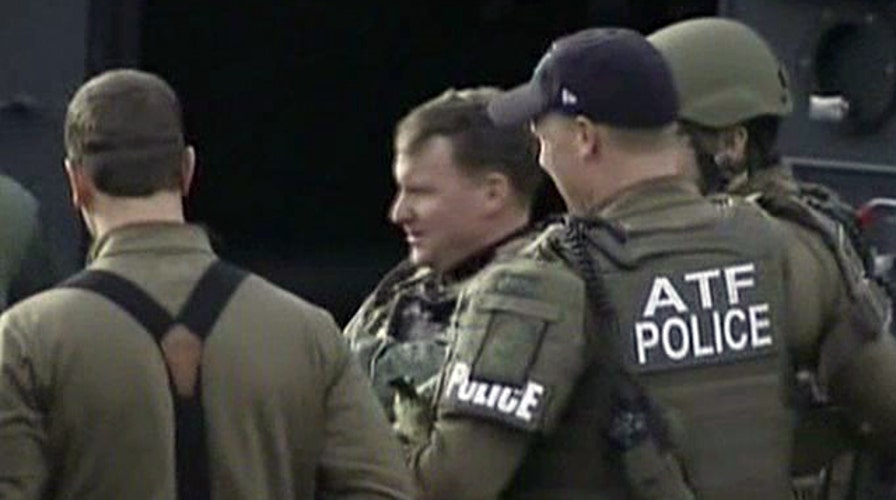ATF under investigation for undercover storefront stings
William La Jeunesse reports from Los Angeles
Just as America's premier gun-policing agency began to crawl out from under the embarrassment of Operation Fast and Furious, the Bureau of Alcohol, Tobacco, Firearms and Explosives is again under fire -- this time for tactical mistakes tied to a separate program designed to get crime guns off the street.
"To say the operation was extremely flawed would be a vast understatement," Wisconsin Republican Rep. Jim Sensenbrenner told a House Judiciary subcommittee last week.
Operation Fearless, as it was called, was a multi-city program through which ATF opened roughly 37 pawn shops and storefronts around the country, often in or near gang areas, with the purpose of attracting felons and criminals to unknowingly sell their crime guns to the government. Agents would then trace the weapons to determine their source and use forensics to tie the guns to homicides.
Problem is, some storefronts opened across from schools and churches, against policy. Agents attracted juveniles with free video games and alcohol. In one case, the agency paid two informants, one mentally deficient, to get tattoos on their neck of a squid smoking a joint to promote the store. Taxpayers later paid to remove the tattoos.
"It certainly was the Keystone Cops in operation," Sensenbrenner said. "It was an abysmal failure that put on the street a stolen, fully automatic M-4 rifle as well as other stolen firearms."
The program is now being investigated by two House subcommittees and the Justice Department inspector general's office. But ATF agents defend the program, saying lawmakers overstate the problem and have no idea what goes into an undercover sting operation.
"Putting this into context, there were deficiencies with the storefront operations, but there have been many successes and it still remains a viable technique when managed well," ATF Deputy Director Tom Brandon told lawmakers on Thursday.
Former ATF undercover agent Jay Dobyns put it more bluntly.
"There are dozens upon dozens of homicide cases that are closed behind these cases," he said. "They bring justice, closure to the family and holds people responsible for violent crimes. That seems to be lost in this story."
Brandon called the storefront stings "resource intensive" but a valuable investigative tool. Locating one gun-buying operation in Portland, Ore., across the street from a middle school was "a mistake," he acknowledged. And he said it was not "great judgment" for agents to pay $150 for the two teens to get tattoos on their neck, although it was their idea, he said, and agents supposedly tried to talk them out of it.
Sensenbrenner wasn't so forgiving. "This doesn't appear to be one operation gone bad, but a systemic problem plaguing the ATF," he said.
But those familiar with undercover law enforcement operations say Congress is overreacting and being naive.
"What is being alleged is half the story," Dobyns said. "Much of what takes place is what goes right with the storefronts."
Over six months in Milwaukee, the ATF arrested 36, including 25 felons and four career criminals. The agency says it took possession of 145 guns.
"It is all risky business with these men and women, and that is being ignored," Dobyns said. "As an undercover agent, when you're [in] a real time situation, you don't have time to take an IQ test of someone. Besides, mental deficiency doesn't give you a pass to commit crimes."





